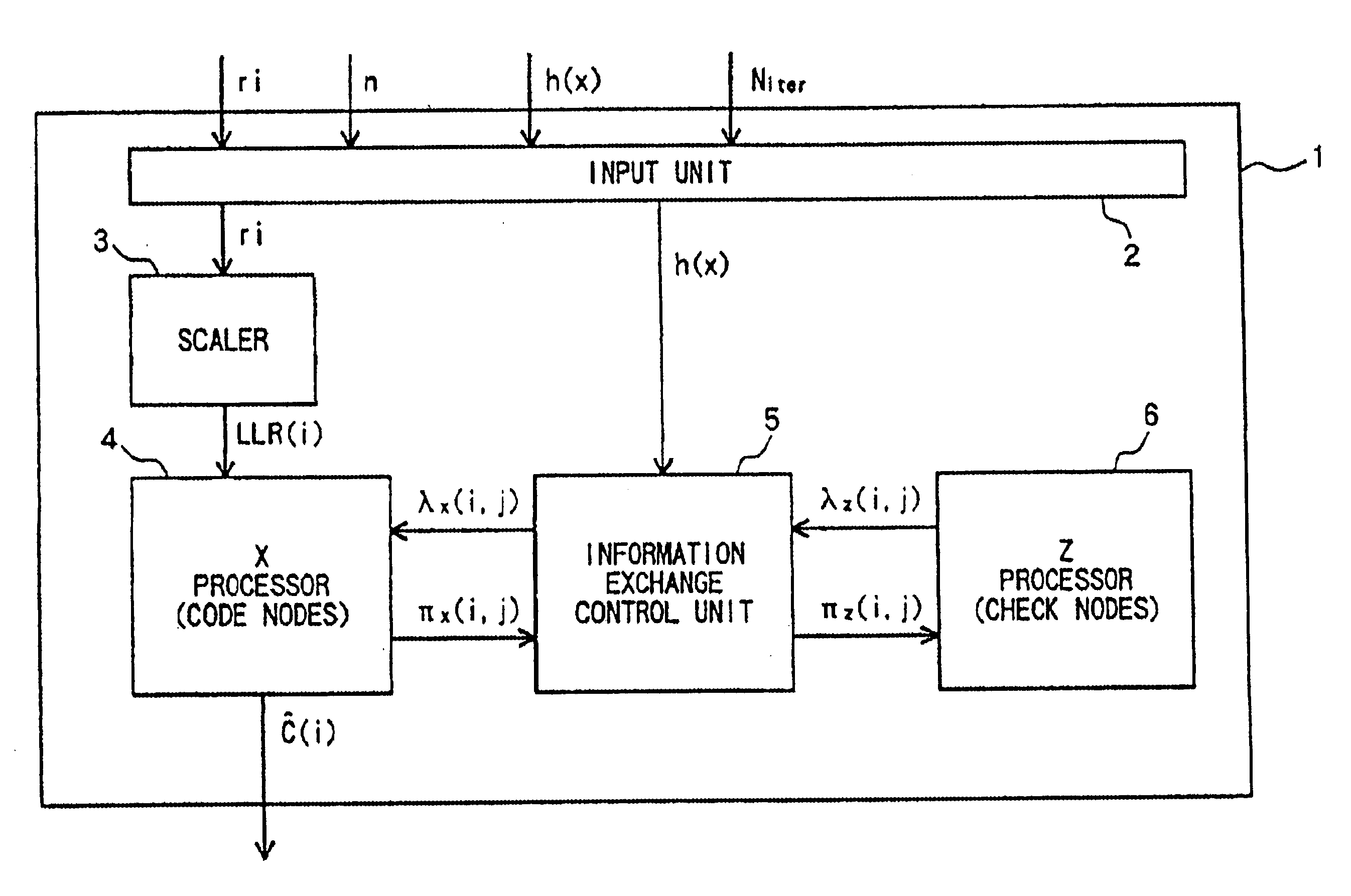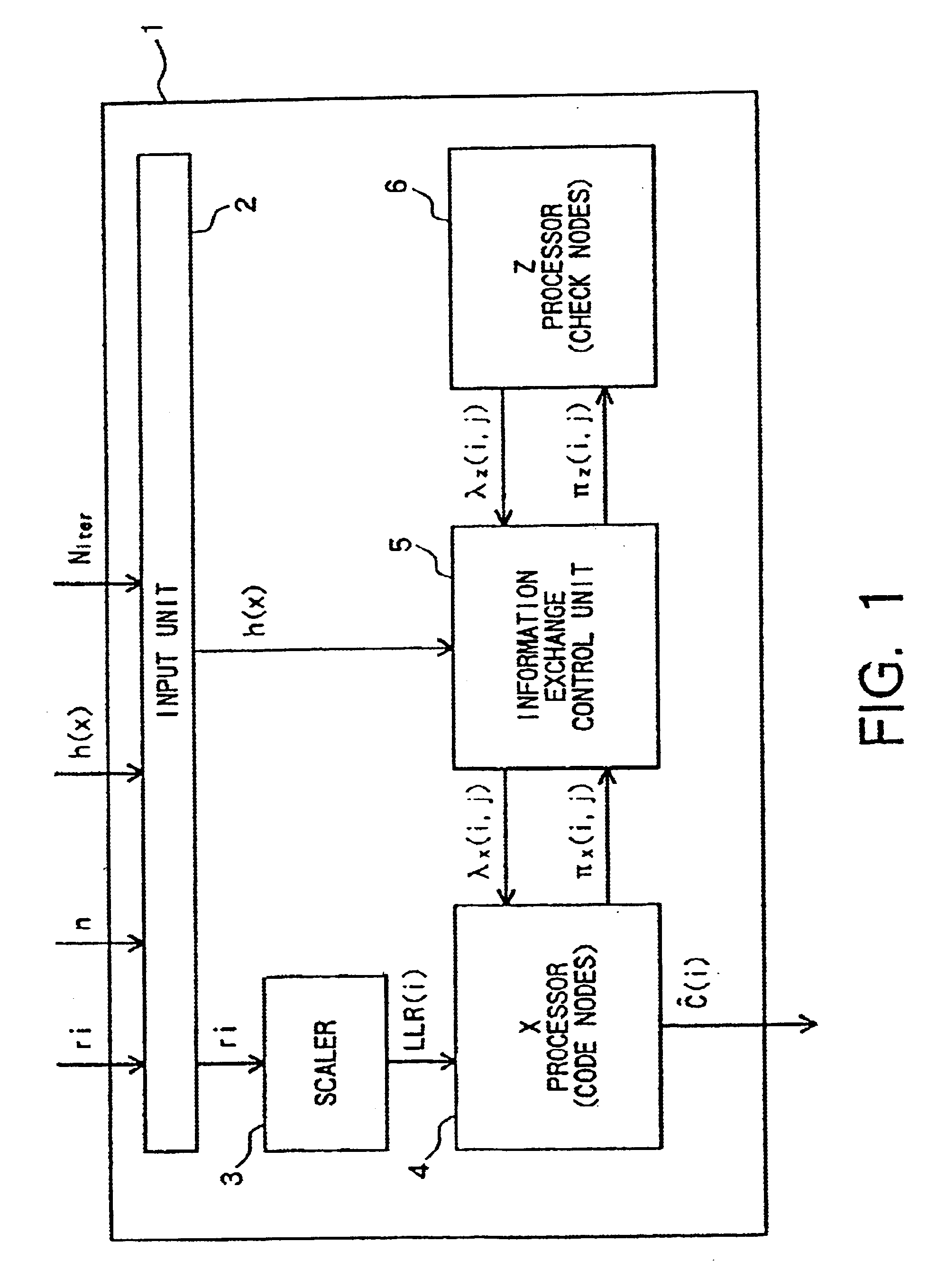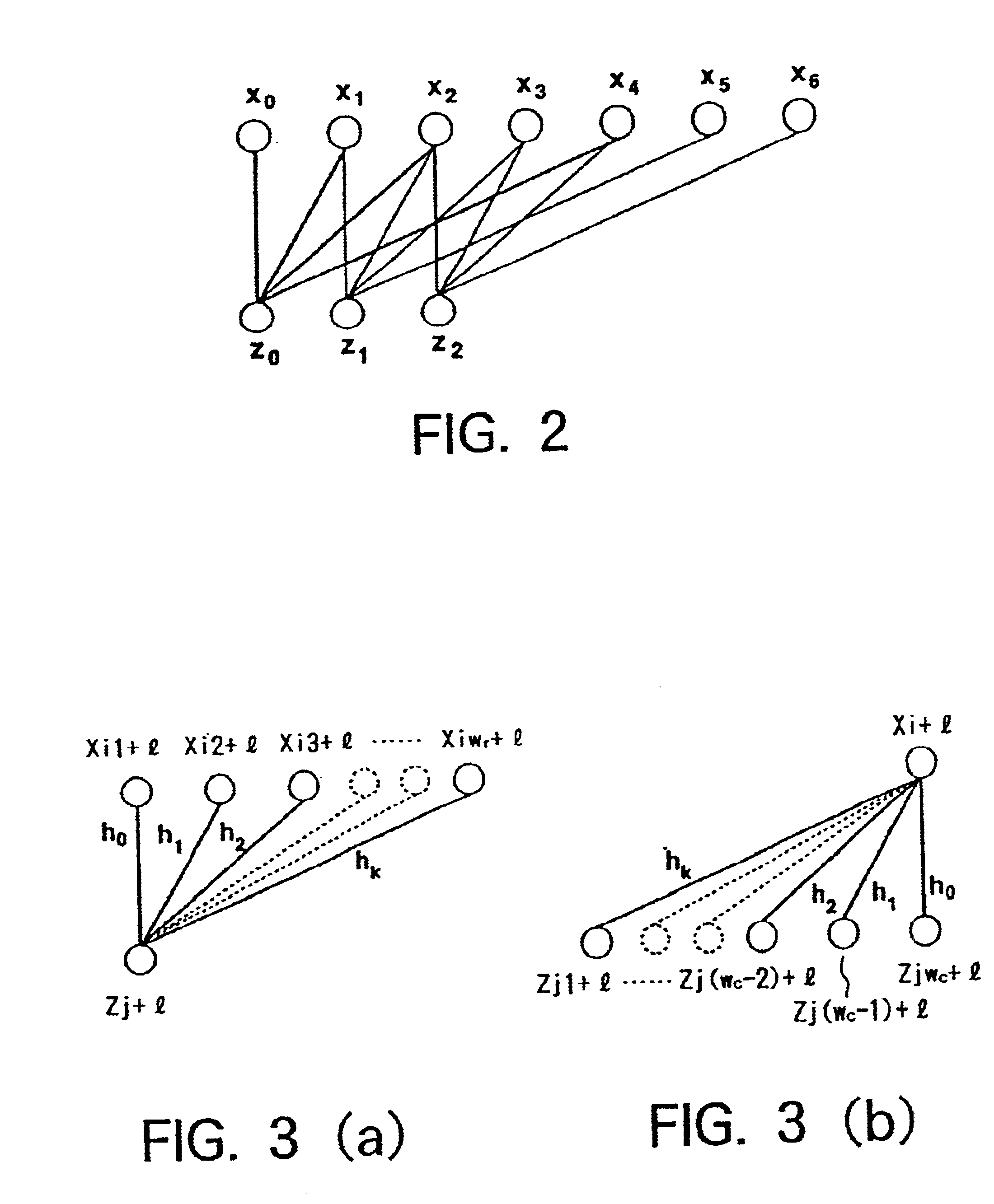Decoder for iterative decoding of binary cyclic codes
a binary cyclic code and iterative decoding technology, applied in the field of decoding for iterative decoding of binary cyclic codes, can solve the problem of iterative decoding of (n,k) binary cyclic codes based on belief propagation and only producing poor results
- Summary
- Abstract
- Description
- Claims
- Application Information
AI Technical Summary
Benefits of technology
Problems solved by technology
Method used
Image
Examples
Embodiment Construction
Next, a decoder according to the embodiment of the present invention will be described while referring to the accompanying drawings.
FIG. 1 is a block diagram showing functional components of a decoder 1 according to the embodiment of the present invention. The decoder 1 includes an input unit 2, a scaler 3, an X processor 4, an information exchange control unit 5, and a Z processor 6.
The decoder 1 is for decoding a binary transmission of a data stream, which was transmitted across a noisy channel, into n-number of estimated bits {character pullout}.sub.i. In the embodiment, it is assumed that binary transmission with energy per symbol Es (i.e., "0" and "1" are transmitted as +E.sub.s and -E.sub.s respectively) takes place over an additive white Gaussian noise (AWGN) channel with one-sided spectral density N.sub.0.
Before the data stream is transmitted across the noisy channel, an encoder follows the conventional manner of encoding to encode the data stream according to a binary cycli...
PUM
 Login to View More
Login to View More Abstract
Description
Claims
Application Information
 Login to View More
Login to View More - R&D
- Intellectual Property
- Life Sciences
- Materials
- Tech Scout
- Unparalleled Data Quality
- Higher Quality Content
- 60% Fewer Hallucinations
Browse by: Latest US Patents, China's latest patents, Technical Efficacy Thesaurus, Application Domain, Technology Topic, Popular Technical Reports.
© 2025 PatSnap. All rights reserved.Legal|Privacy policy|Modern Slavery Act Transparency Statement|Sitemap|About US| Contact US: help@patsnap.com



